Sunrise, a Belgium-based biotech start-up, has developed an innovative new at-home sleep apnea test. The test consists of a lightweight, wireless device placed on the chin that measures mandibular (lower jaw) movement to assess interruptions in breathing during sleep.
The design of the device is far less invasive than current conventional sleep apnea tests, which involve the placement of different electrodes on the body that involves a lot of wires. Standard sleep studies often require overnight stays at a hospital or other clinical setting. Sunrise’s sleep apnea test is a self-administered, wireless test that can be performed at home. It is a one-time use, disposable test that comes with a prepaid envelope for return of used devices (to Belgium) that the company recycles to be environmentally responsible.
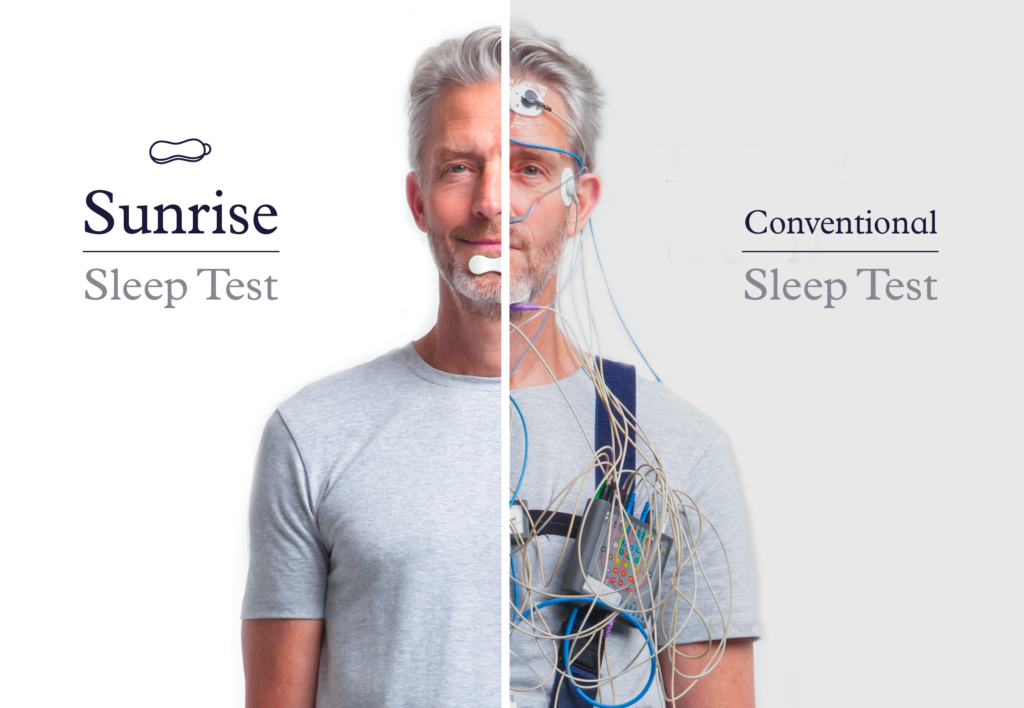
Sleep apnea is a growing health issue. In the US, it is estimated that 22 million people suffer from sleep apnea and that 80 percent of moderate and severe obstructive sleep apnea cases go undiagnosed. The risk of the condition increases with age and men are two times more likely to develop it than women.
Sleep apnea is a sleep disorder characterized by intermittent periods of disrupted breathing that cause people to wake up during sleep. As a result, people with the condition often feel tired during the day despite having had a good number of sleeping hours during the night. Along with tiredness, snoring is another common indicator of sleep apnea.
It is normal for adults to have up to four short breathing pauses in an hour that last only a few seconds each. In apnea, these pauses are ten seconds or longer, and more frequent. In mild sleep apnea, these events occur five to 14 times per hour, 15 to 30 times per hour in moderate sleep apnea and over 30 times per hour in the severe form of the condition. These pauses in breathing cause unconscious micro-awakenings during sleep, leading to disrupted and impaired sleep.
If left undiagnosed and untreated, sleep apnea can lead to an increased risk of health problems such as heart disease including heart attack and heart failure, stroke, hypertension, diabetes and obesity.
Related: Signifier Medical Technologies’ Sleep Apnea Treatment Device Gets FDA Nod
The most common form of the condition is obstructive sleep apnea (OSA) in which the muscles of the throat and tongue relax, causing obstruction that leads to narrowing of the pharynx, or airway. Another form of sleep apnea called central sleep apnea (CSA) occurs when the brain temporarily stops sending signals to the muscles that control breathing.
People suspected of having sleep apnea are often referred to a sleep specialist who conducts a sleep study at a hospital using polysomnography, which is a method that monitors brain waves, eye movement and blood oxygen levels during sleep.
“Traditionally, sleep tests consist of hospital beds and being tied to endless cables and electrodes,” says Sunrise CEO Laurent Martinot in an interview, who is the son of Jean-Benoit Martinot, the sleep specialist behind the inception of the Sunrise device. “Other conventional tests used at home are often bulky and provide less information than a hospital. Ensuring the user has a comfortable experience increases the chance of a more restful sleep, therefore providing more reliable results.”
How the Sunrise Sleep Apnea Test Works
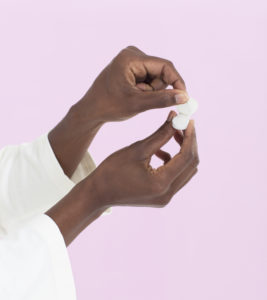
Sunrise’s sleep apnea device contains an AI-powered sensor that weighs only three grams. The device is wireless and is affixed
to the user’s chin with a simple adhesive layer, remaining there throughout the night as the individual sleeps. Sunrise has Bluetooth-integrated technology that connects to a mobile app that receives and processes data from the device throughout the night, with results ready to view in the morning.
“Studies have shown that the chin is a great spot for studying our sleep at night. This small 3-gram sensor is somewhat similar to placing a needle into the brainstem to listen to our brain for an entire night”, explaines Martinot.
The device measures all respiratory metrics certified for sleep apnea including REM sleep, teeth grinding, hypersomnia (sleeping too much), insufficient sleep syndrome and other relevant medical sleep measurements. It also measures other unique features not evaluated in standard polysomnography testing such as the number of micro-awakenings per hour and respiratory effort.
“Micro-awakening, when caused by an obstructive event is a natural defence mechanism from the body,” says Martinot. “The micro-arousal causes a stiffening of the back of the throat, allowing the air to circulate again.”
Assessments of these micro-arousals are based on the movement of the user’s chin overnight — a measure called mandibular movement. Respiratory effort is typically assessed in polysomnography by evaluating changes in pressure in the esophagus, which is a useful surrogate for intrathoracic pressure.
In developing their device, the Sunrise team first determined the association between polysomnography and mandibular movement and poor sleep. They used this information to then develop technology that could measure the minute mandibular movements with a device that would be both non-invasive and inexpensive.
“Another challenge was to develop the artificial intelligence algorithm allowing an automatic analysis with reliable, reproducible and immediate results,” explains Martinot. “It was made possible by training the algorithm to recognize characteristic patterns, just like the sleep specialist is doing when scoring manually.”
If the sleep test detects sleep apnea, users can be put directly in touch with a sleep specialist, such as a respiratory physician, neurologist or psychiatrist, for a formal diagnosis and discussion of treatment options. The most common treatment for the condition is the use of a continuous positive airway pressure (CPAP) machine that delivers a steady stream of air through a mask that is worn while sleeping to keep the airway open. In some cases, losing weight or surgery to remove excess tissue from the palate or throat can also be treatment options to consider.
Clinically Validated and Certified
The Sunrise sleep apnea test has been clinically validated, with demonstrated accuracy comparable to conventional polysomnography-based testing. A study published in JAMA conducted by French, Belgian and American sleep physicians that included 376 patients compared sleep data obtained with Sunrise and with polysomnography, finding that automatic analysis of mandibular movement patterns reliably calculated respiratory disturbance index.
However, while the device can be used by people with beards, accuracy may be compromised if the beards are too thick, which is why shaving is recommended before using the test.
Sunrise is certified by the European Commission as a medical device and is available for purchase in the EU for £89 apiece through the company’s website.

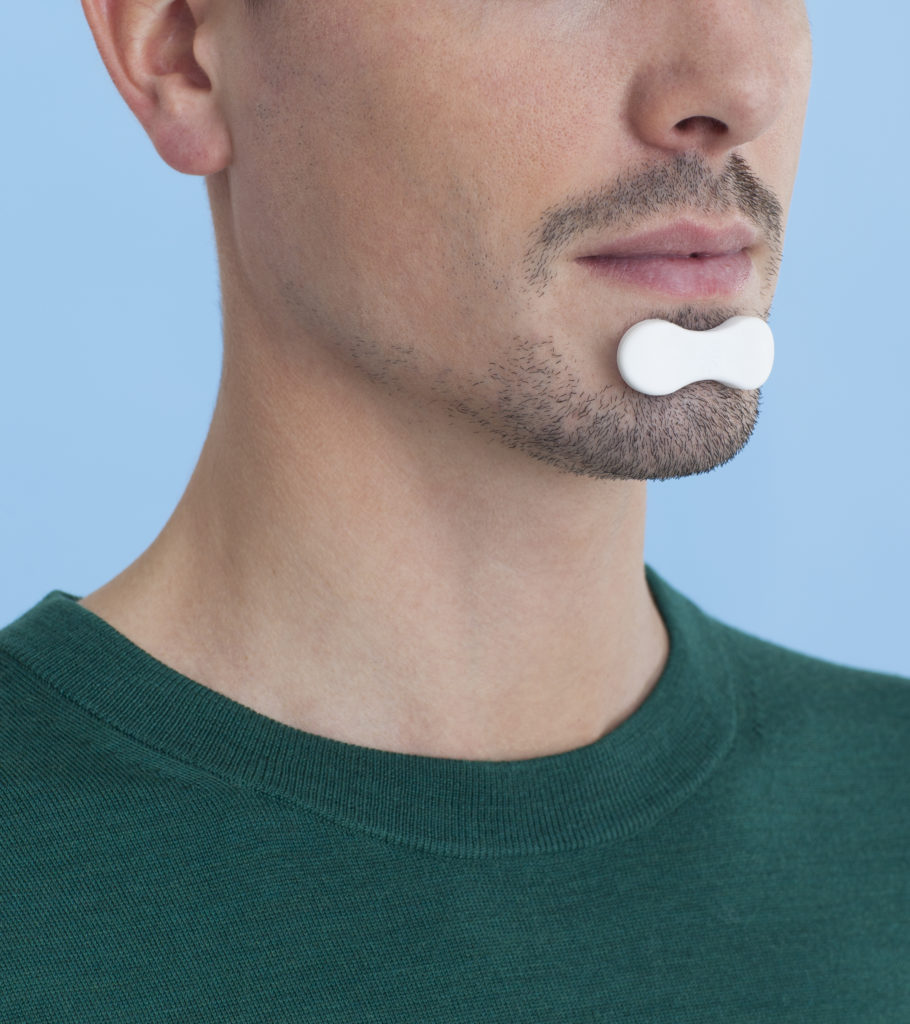

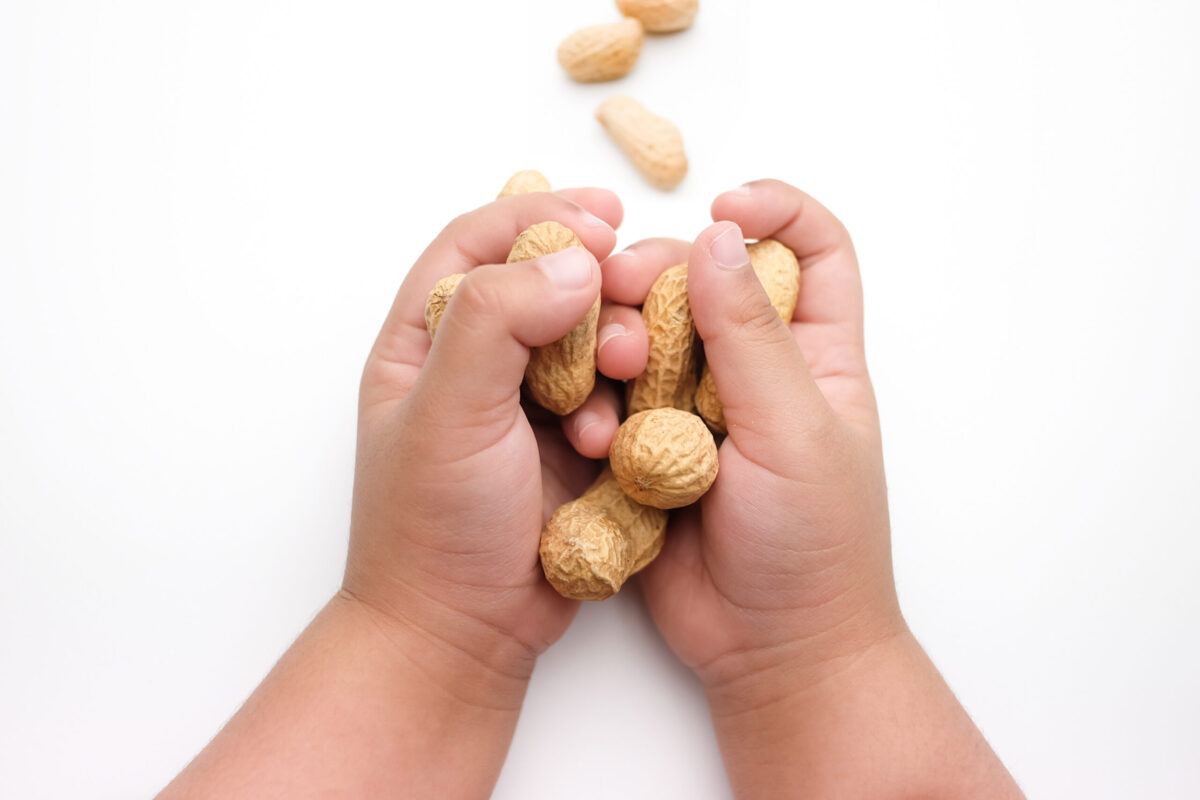

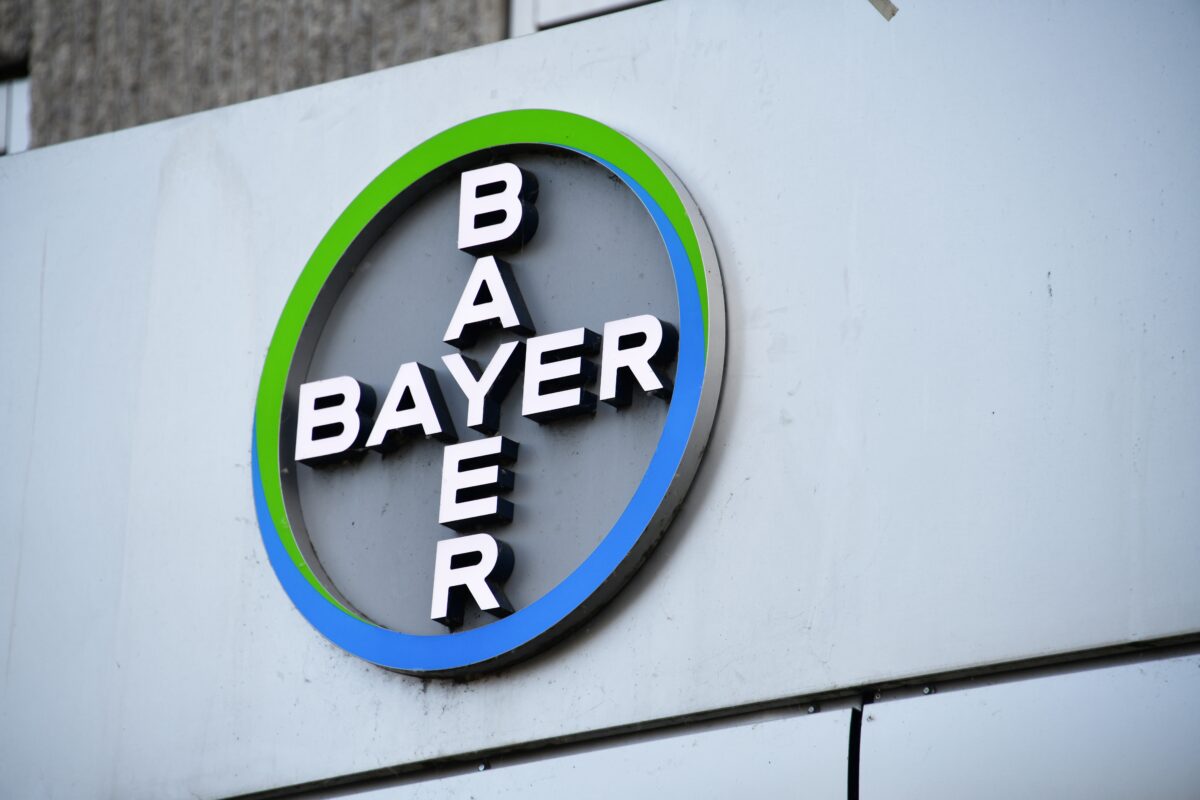
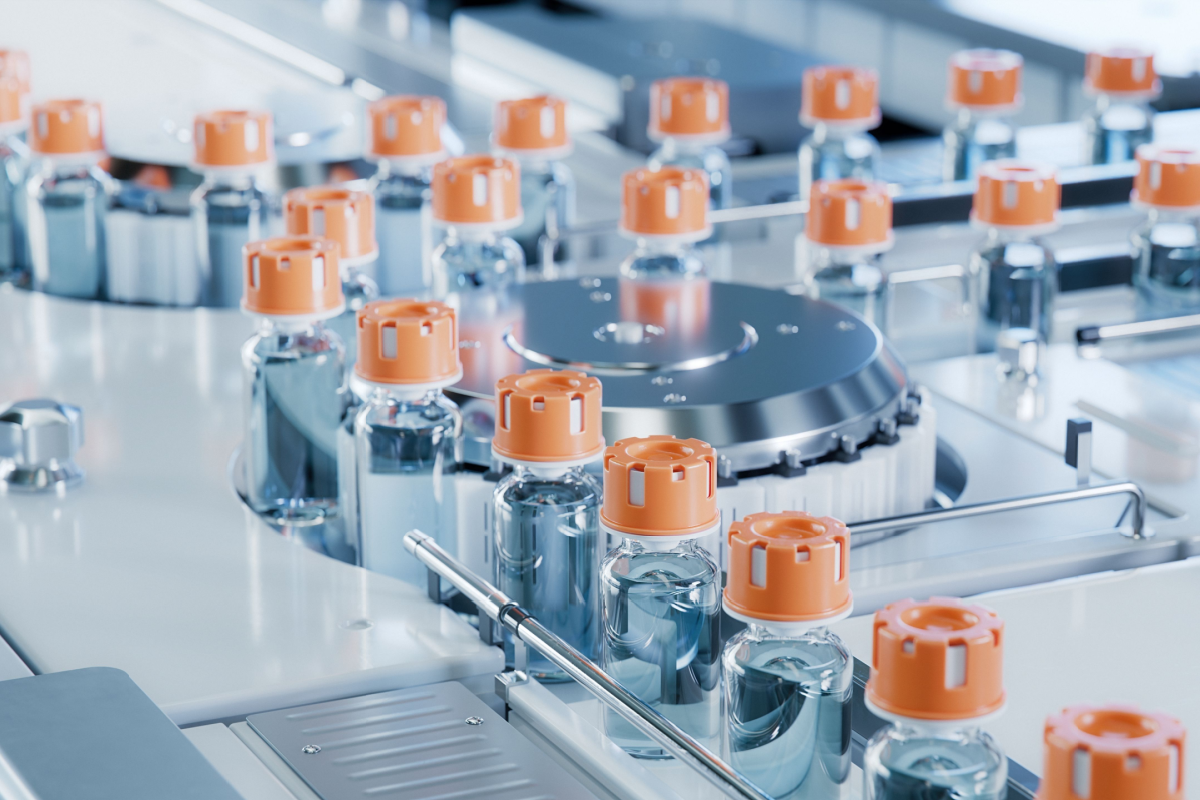





Join or login to leave a comment
JOIN LOGIN